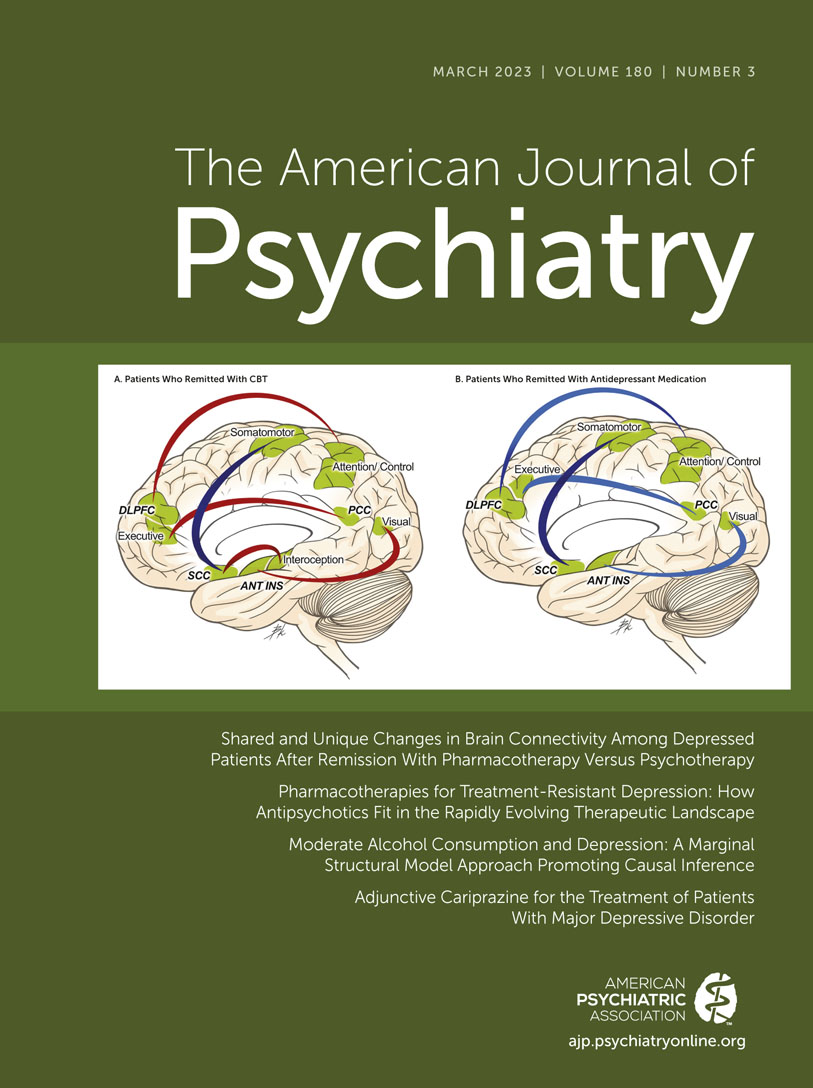Adjunctive Cariprazine for the Treatment of Patients With Major Depressive Disorder: A Randomized, Double-Blind, Placebo-Controlled Phase 3 Study
Abstract
Objective:
The purpose of this study was to investigate the efficacy of cariprazine, a dopamine D3-preferring D3/D2 and serotonin 5-HT1A receptor partial agonist, as adjunctive therapy for patients with major depressive disorder and nonresponse to at least one antidepressant monotherapy.
Methods:
In this double-blind placebo-controlled study, adults with major depressive disorder and inadequate response to antidepressants alone were randomized in a 1:1:1 ratio to placebo, cariprazine at 1.5 mg/day, or cariprazine at 3.0 mg/day. The primary outcome was change from baseline to week 6 in total score on the Montgomery-Åsberg Depression Rating Scale (MADRS). Least-squares mean differences were estimated in the modified intent-to-treat (mITT) population using a mixed-effects model for repeated measures with adjustment for multiple comparisons.
Results:
The mITT population comprised 751 patients (placebo: N=249; cariprazine 1.5 mg/day: N=250; cariprazine 3.0 mg/day: N=252). At week 6, the mean reduction from baseline in MADRS total score was significantly greater with cariprazine 1.5 mg/day than with placebo (−14.1 vs. −11.5) but not with cariprazine 3.0 mg/day (−13.1). Significant differences between the cariprazine 1.5 mg/day and placebo groups were also observed at weeks 2 and 4. Meeting the MADRS response criteria was significantly more likely among patients receiving cariprazine 1.5 mg/day than placebo (44.0% vs. 34.9%); remission rates were not significantly different among groups. Common treatment-emergent adverse events (≥5% in either cariprazine group and twice the placebo rate) were akathisia and nausea.
Conclusions:
Adjunctive cariprazine at 1.5 mg/day demonstrated efficacy in reducing depressive symptoms in adults with major depressive disorder and inadequate response to antidepressants alone. Cariprazine was generally well tolerated, with a safety profile that was consistent with previous findings.



